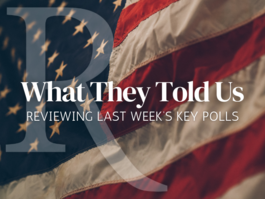Untouched by the 60s, 'Romney reflects the Corny '50s
A Commentary by Michael Barone
One question I sometimes have been asked in this presidential campaign goes something like this: Why does Mitt Romney sound so corny?
Actually, phrasing it that way suggests the answer. "Corny" is a word you don't hear people say much any more. As you reach a certain age, you hear yourself uttering words or phrases that you realize no one else says anymore. The vernacular of your youth has passed into quiet obscurity.
As it happens, I know something about Romney's youth, since he was three years behind me at the private boys school I attended in Bloomfield Hills, Mich. I still have trouble shaking my image of him as a 14-year-old boy, which he was when I graduated.
Romney was popular at school in part because his father was the Republican candidate for governor that year and would be the first Republican to hold that office in 14 years. This was a school where the straw vote in the 1960 presidential election was Richard Nixon 92 percent, John Kennedy 8 percent.
Academically, the school was a fast track, with some very good teachers and a lot of very smart boys. Romney was not at the top of his class, but apparently he did just fine.
But as I look back on his biography, it seems to me that Romney missed one experience that changed the outlook and even the vocabulary of most of his schoolmates. This is a man who never experienced the '60s. You know what I mean: peace demonstrations, dope smoking, ironic detachment, all that.
He spent a year in Stanford when, despite the calendar, the '60s were just starting to arrive in Palo Alto, Calif.; he debated the protesters. He then worked as a Mormon missionary in France (why doesn't some debate questioner ask him to speak some French for us?) and witnessed with disapproval the May 1968 upheaval in Paris.
When he returned to the United States, he married his high school sweetheart (from our school's female equivalent; the two have since merged). They went off to Brigham Young University, run by the Mormon Church. You can be sure that the '60s never arrived there.
From BYU, the Romneys moved on to Harvard. There, Mitt entered a joint program at the law and business schools. He had top grades, which means he must have studied really hard -- in a house with two babies to take care of. No time for Woodstock!
After graduating, Romney plunged into his work at Boston Consulting Group and Bain Capital. The views he expressed in his 1994 Senate campaign -- pro-choice on abortion, skittish about the Reagan administration -- reflect the ethos and lingo of top management consultants at the time, people only mildly affected by the '60s.
Romney was also called on to serve as a leader in the Mormon Church, which has no career clergy, and spent considerable time counseling and tending to fellow believers. That's a constituency not much affected by the '60s.
Romney's difficulty in seeking the Republican nomination is his adaptability to terrain: He sounded one way when he was running for governor of Massachusetts in 2002, another way when he set out to run for president in 2007 and 2008.
This seems characteristic. Asked by friends what Romney was really like, one Bain Capital veteran responded, "Which four or five of the Romneys do you mean?" And perhaps it makes sense for a private-equity executive building firms like Staples and Sports Authority to adapt his approach and manner to each company's particular culture.
Romney has shown adaptability in running for president, too. In 2008, he followed the example of George W. Bush (who experienced the '60s in depth and didn't like it a bit), spending lots of money, proclaiming himself pro-life, crisscrossing Iowa. It didn't work.
The way he is campaigning this year seems more in line with his own experience. He has obviously worked hard studying the issues, making himself look like a foreign policy expert, though he has no experience in that line unless you count organizing the Salt Lake City Winter Olympics. He has worked hard constructing a New Hampshire firewall and trying to avoid betting too heavily on Iowa.
But though smooth and articulate in debate, he is awkward in chitchat and often sounds corny, as if he is still living in the '50s.
That's natural for someone who missed the '60s.
Michael Barone, senior political analyst for The Washington Examiner (www.washingtonexaminer.com), is a resident fellow at the American Enterprise Institute, a Fox News Channel contributor and a co-author of The Almanac of American Politics. To find out more about Michael Barone, and read features by other Creators Syndicate writers and cartoonists, visit the Creators Syndicate Web page at www.creators.com.
COPYRIGHT 2011 THE WASHINGTON EXAMINER
DISTRIBUTED BY CREATORS.COM
See Other Political Commentaries.
See Other Commentaries by Michael Barone.
Views expressed in this column are those of the author, not those of Rasmussen Reports. Comments about this content should be directed to the author or syndicate.
Rasmussen Reports is a media company specializing in the collection, publication and distribution of public opinion information.
We conduct public opinion polls on a variety of topics to inform our audience on events in the news and other topics of interest. To ensure editorial control and independence, we pay for the polls ourselves and generate revenue through the sale of subscriptions, sponsorships, and advertising. Nightly polling on politics, business and lifestyle topics provides the content to update the Rasmussen Reports web site many times each day. If it's in the news, it's in our polls. Additionally, the data drives a daily update newsletter and various media outlets across the country.
Some information, including the Rasmussen Reports daily Presidential Tracking Poll and commentaries are available for free to the general public. Subscriptions are available for $4.95 a month or 34.95 a year that provide subscribers with exclusive access to more than 20 stories per week on upcoming elections, consumer confidence, and issues that affect us all. For those who are really into the numbers, Platinum Members can review demographic crosstabs and a full history of our data.
To learn more about our methodology, click here.



